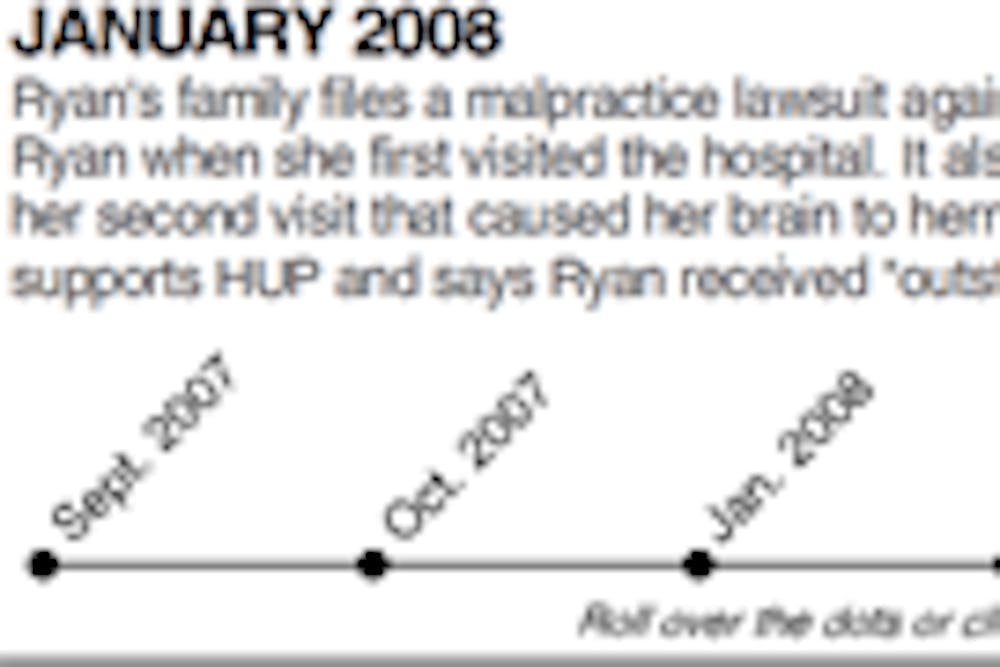The medical malpractice trial concerning Anne Ryan, a College sophomore who died of bacterial meningitis on Sept. 9, 2007, will begin on Monday.
Ryan’s older brother Jed filed a lawsuit against the Hospital of the University of Pennsylvania in January 2008 that alleges HUP acted negligently in performing a lumbar puncture on Ryan that caused her brain to herniate. The suit seeks $600,000 in compensatory damages.
According to the lawsuit, Ryan first visited HUP on Sept. 6, exhibiting meningitis-like symptoms. She was discharged with antibiotics after undergoing various tests, including a second lumbar puncture. She returned on Sept. 8 and received a second spinal tap, though a CT scan performed that day had revealed brain swelling.
The plaintiff also alleges the spinal tap was an unnecessarily risky procedure that caused her brain to herniate.
In a statement issued on Jan. 11, 2008, the University said Anne Ryan “unquestionably did not have meningitis when she was tested in the Emergency Department” initially and that she “received outstanding care from a staff of dedicated professionals.”
In addition to HUP, the University of Pennsylvania Health System, the Penn Board of Trustees and numerous Health System divisions and doctors were named in the lawsuit.
According to Leon Aussprung, a Philadelphia-based medical malpractice lawyer unaffiliated with the case, it is “not uncommon” for multiple parties to be sued in a medical malpractice case, especially when the case concerns large hospitals such as HUP.
Aussprung, who is also a Penn Law School alumnus and former practicing doctor, explained that malpractice in these cases consists “frequently [not] of a single error,” but are rather due to a series of errors across the entire case.
Jury selection for the trial will occur today. The trial will begin at 9 a.m. on Monday at City Hall with Judge Patricia McInerney presiding.
Four types of witnesses are likely to be called to testify during the trial, Aussprung said.
These include the plaintiffs, the defendants, fact witnesses — those who were personally involved with issues in the case but weren’t sued, such as other doctors and nurses — and expert witnesses.
He said four criteria must be proven in order for the plaintiffs to win their case.
The plaintiffs must prove the defendants had a “duty of care” in the situation, that the defendants deviated from the standard of care, that there are damages that occurred and that there is a link between what the doctors did wrong and the damages, according to Aussprung. What must be proven is that the medical professionals caused the damages, he added.
Additionally, in Pennsylvania, the standard of care and causation criteria must be proven by expert testimony. The prosecution and defense are likely to each call their own experts, Aussprung said.
The lawyer representing Ryan’s family, Thomas Kline, declined to comment prior to the trial. HUP legal counsel James Young did not return calls for comment.
In 2008, the defense won 67.7 percent of medical malpractice cases in Philadelphia where jury verdicts were issued, according to a news release from the Administrative Office of Pennsylvania Courts. Across the state, 81.4 percent of jury verdicts favored the defense in such cases.



